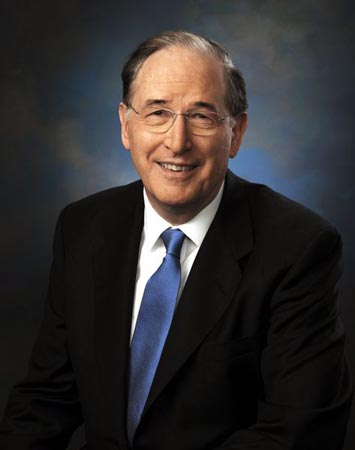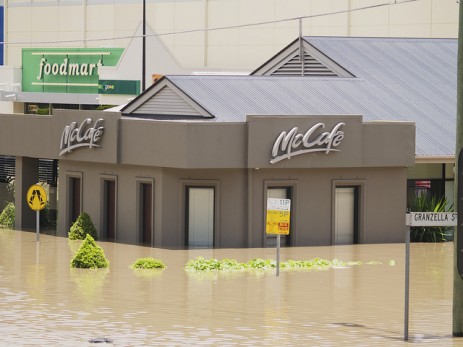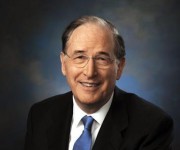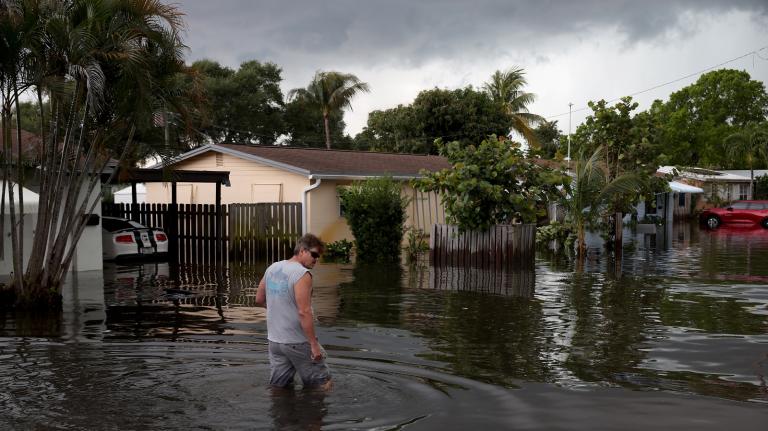 Sen. Jay Rockefeller (W.Va.)Since taking control of the House of Representatives last week, key committee chairs have used heated rhetoric to justify their efforts to block the EPA from updating Clean Air Act safeguards with new standards to reduce emissions of life-threatening pollution from power plants and other major sources. Rep. Fred Upton (R-Mich.), now Chair of the powerful House Energy and Commerce Committee with jurisdiction over the Clean Air Act, called the EPA’s plans to limit carbon dioxide emissions an “unconstitutional power grab,” while Rep. Mike Simpson (R-Idaho), who now chairs the EPA’s appropriations subcommittee, called the EPA “the scariest agency in the federal government, an agency run amok.”
Sen. Jay Rockefeller (W.Va.)Since taking control of the House of Representatives last week, key committee chairs have used heated rhetoric to justify their efforts to block the EPA from updating Clean Air Act safeguards with new standards to reduce emissions of life-threatening pollution from power plants and other major sources. Rep. Fred Upton (R-Mich.), now Chair of the powerful House Energy and Commerce Committee with jurisdiction over the Clean Air Act, called the EPA’s plans to limit carbon dioxide emissions an “unconstitutional power grab,” while Rep. Mike Simpson (R-Idaho), who now chairs the EPA’s appropriations subcommittee, called the EPA “the scariest agency in the federal government, an agency run amok.”
Sens. Barbara Boxer (D-Calif.), Sheldon Whitehouse (D-R.I.), Tom Harkin (D-Iowa), Frank Lautenberg (D-N.J.), and others quickly stood up to defend public health, pledging to ensure that the EPA be allowed to do its job. Certain others, however, are trying to have it both ways, decrying the radical agenda of House leaders while urging a delay in the EPA’s ability to limit dangerous carbon pollution. Sen. Jay Rockefeller (D-W.Va.) told reporters last week that he plans to reintroduce and push his bill to block all work on standards to limit carbon dioxide emissions from power plants and other stationary sources for two years. Rockefeller, however, sought to distance himself from Upton and others, telling E&E News [$ubreq] “What worries me is we’ll get so many votes, but we’ll also get a bill which abolishes EPA, strips them of all funding, and I’m not for that …”
So is there really much daylight between the radical anti-regulatory rhetoric of the new House leadership and the more moderate-sounding stance of Rockefeller? In a word: No. Delay is just obstruction by another name. It would accomplish nothing other than to ensure that more dangerous pollution is dumped into the atmosphere and that U.S. companies fall behind in the global competition for clean energy markets.
Rockefeller’s arguments for delay simply don’t stand up to scrutiny. Rockefeller has previously said that a delay is needed to give Congress the opportunity to enact comprehensive climate legislation. Congress had its opportunity last year and took a pass. No one expects this Congress to enact that kind of legislation, so it’s only logical to assume that Rockefeller will want to continue blocking the EPA indefinitely until a future Congress eventually steps up to that task. More recently, Rockefeller argued that the two-year delay would allow time for the development of carbon capture and storage technology (CCS). While we can make progress on a few federally-funded CCS projects, the main effect of a two-year delay in setting and enforcing carbon pollution limits would be to stifle the private sector investment essential to commercializing this technology. The climate legislation passed by the House in the last Congress would have accomplished the goals Rockefeller has endorsed, including providing very generous support for deploying CCS technology. But the Senate didn’t even bring the bill up for a vote, in part because of Rockefeller’s objections. The likelihood is that two years from now Rockefeller will still be arguing we need more time for the development of CCS.
The biggest problem with legislating delays in action on carbon pollution — whether one year or two — is that provisions like these are like roaches: once they get into your house they are nearly impossible to exterminate. Take the case of vehicle fuel efficiency standards. Congress passed a one-year delay in updating passenger car standards in 1995. The delay was extended five times. Because the standard was already overdue for an update and because the delay provision barred the Department of Transportation from doing any work to prepare for future updates, car standards ended up stuck in neutral for a total of 21 years. This stagnation literally bankrupted the U.S. auto industry, which was unprepared to compete when consumers turned away from gas guzzling SUVs as fuel prices started to rise in second half of the last decade. We can expect a similar outcome if this story is repeated with pollution standards for power plants, refineries, and other big polluters. America’s nascent clean energy industry could end up needing a bailout that would make the auto bailout pale by comparison. And no bailout could heal the damage done to our atmosphere.
The bottom line is that our elected representatives have to make a choice. Will they stand up for protecting the health of American families from life-threatening pollution or will they side with big polluters?




